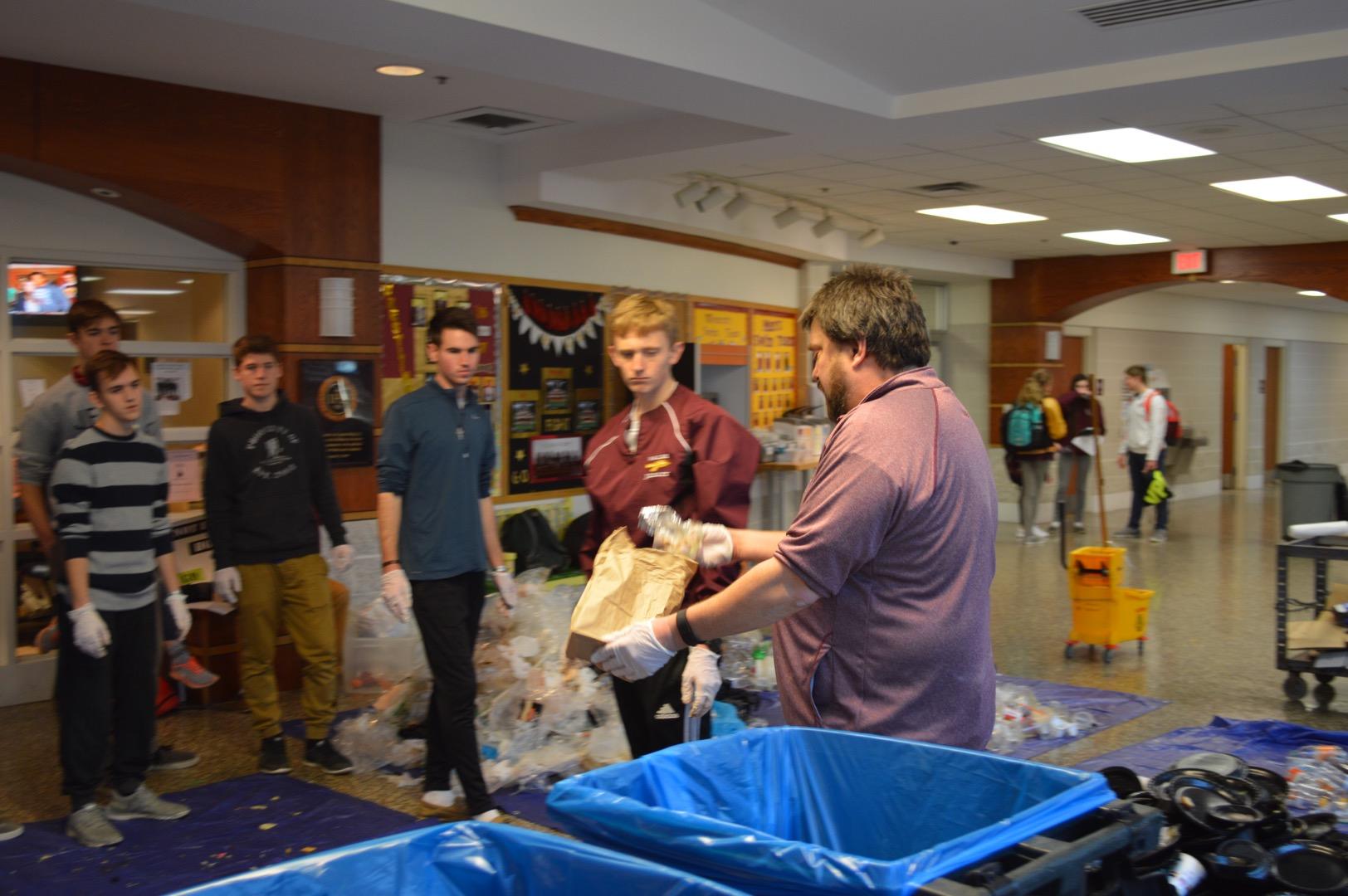Conservation Day: Earth Week’s final challenge
Steps to make environmental conservation a conscious habit
People without access to clean water: 783 million.
Population without adequate sanitation: 2.4 billion.
Percentage of the world’s forests destroyed to date: 80%.
Amount of plastic finding its way to the ocean every year: 10-20 million tons.
U.S. electric industry: responsible for 30% of all carbon emissions.
Junior Halle Dray admitted, “I constantly hear about conservation of Earth’s resources and never consider what it actually means, but these statistics really reveal the urgency of this worldwide issue.”
The planet is being destroyed.
Conservation means “the sensible and careful management of natural resources,” but take a closer look. Conservation requires reducing product usage to protect our common home that is adversely affected by various industries. It is time to acknowledge the necessity of conserving water, paper, plastic, and electricity.
Water, essential to life, lies at the center of a critical debate in developing nations, especially Sudan where 20 million people face starvation and dehydration, one of the greatest humanitarian crises in world history. This highlights the need for even privileged U.S citizens to employ sustainable water practices, or the careful use of water, to guarantee this essential resource for future generations. So cut that 20-minute, 50-gallon shower in half to conserve Earth’s vital resource.
Paper production has devastating effects on the planet, including the clearing of forests and the loss of biodiversity. In addition, the immense amount of fossil fuels used during extraction, production, and transportation accelerates pollution and climate change. Conserving is as simple as going digital or printing that 9-page research paper double-sided.

Science teacher Mr. Truax instructs members of the WJ Green Team as they learn how to perform and record the trash audit.
Plastic has been the focus of the WJ Green Team effort to help students reduce, reuse, and recycle efficiently. The plastics industry pollutes more than one might think because it takes 450-1,000 years to decompose. Reduce, reuse, recycle, in that order!
Electricity, mostly produced by burning coal and natural gas in Ohio (and thus contributing to climate change), can be conserved by turning off lights and unplugging devices not in current use.
On Thursday, April 20, the WJ community can begin conserving Earth’s resources that are wasted when using water, paper, plastic and electricity thoughtlessly. To move on from this day without being responsible at school, home, and work would mean that Walsh Jesuit has failed as a community. Make conserving a habit to combat environmental injustices.


![Carpool Wednesday: The second Earth Week challenge [Video]](https://thepioneerwjhs.com/wp-content/uploads/2017/04/image2-475x263.jpg)

![Carpool Wednesday: The second Earth Week challenge [Video]](https://thepioneerwjhs.com/wp-content/uploads/2017/04/image2-300x166.jpg)










![Running for Student Government is important [Opinion]](https://thepioneerwjhs.com/wp-content/uploads/2018/04/3948644D-8425-45E6-981E-041D71FFC747-475x314.jpeg)


